Leave your cloisters, stop monkling around - behold the phenomenon of bells! In Episode 17, Daniel and Kelly talk "Ring Them Bells" from 1989's Oh, Mercy. Kelly gives a history of bells and Daniel tries to convey why this song is indispensable.

SHOW NOTES
We listened the original cut from Oh, Mercy and the two featured on TBLS Vol. 8: Tell Tale Signs. **The song was recorded (in one take) in March of 1989 in New Orleans. At the time of recording, it was only played 31 times (it’s last performance in 2005, and the only known solo-Dylan performance on piano on October 20, 1989 in Poughkeepsie, New York).
All of the instruments (sans piano) were added after the fact. Tony Attwood notes (at Untold Dylan, not All Dylan!), “There’s no hint of blues anywhere, where unusual chords are thrown in, as in the middle 8, they have nothing to do with the blues genre. Rather they are stretching the song to see just how far it can go, and the answer is always… a very very long way. This is a very unusual musical approach for Dylan.” Dylan would later note that he felt, “I could have done it unaccompanied.” Thankfully he was accompanied during the 1993 performance at the Supper Club, which Clinton Heylin notes “may well be the single finest moment on the Never Ending Tour.”
But wait, what about bells?! (5:35)
Kelly goes over everything you’ll need to know about “the phenomenon of bells,” if historyofbells.com and half of a BBC documentary are your primary sources (5:35). Bells began around 2,000 BC(E) when metallurgy was a thing (“I don’t know what that is. I’m assuming ‘lurgies’ with ‘metals”). Daniel had to remind Kelly that she’s a master blacksmith in Skyrim and bells began to make more sense to her. Ancient China is where it all starts ringing (“China loves them bells”) before moving to India and Japan. Bells were/are a means of communication. They’re used in Buddhism, Shinto and Hindu religions and in ancient Egypt. Even the Bible mentions Moses bringing the knowledge of bells. So it’s no stretch to call them “the instrument of the gods.” “Sometime more recent than 300 AD but less recent than 600 AD” missionaries traveled the world with psalms and a bell, which would signal everyone to gather round as we about to talk Jesus. Kelly describes cloisters of nuns and monks, brings etymology into this conversation (the Gaelic word for bell is clug – which sounds suspiciously like clock; and curfew comes from French meaning “to put out the fire”). And bells now? They’re still made like before – out of sand, goat hair, and manure. Now, we use bells as instruments – in churches, in band.
SWEET BELL FACTS, SPEED ROUND! The bell itself and the clapper (the thing inside the bell that rings, did you know it was called that!) are made of the same material. The clapper can strike the bell at 1,000 km an hour if properly made and can withstand the punishment for 1,000 years! Great Britain nicknamed “The Ringing Isle” because of all the bells, The Great Bell of Dhammazedi was over 300 tons and it’s lost in the River Burma because the Portuguese tried to steal it for cannons (in 1608) and dropped it — it still hasn’t been found, as its under 25 feet of mud, but new efforts always seem to crop up. Daniel contributes a few bell-adjacent facts: he mentions the Liberty Bell and the contingency plans for American history, essentially a bunch of weird “would you rather’s” involving the Gettysburg Address and the Constitution! And finally, Kelly shows off a new instrument – a carillon.
The song itself (19:50)
Kelly’s first impression, especially after Daniel hyped up the track to be one of his favorites, was why? Her favorite version wasn’t Dylan, but was a sublime take from Sara Jarosz. “I could hear the feeling better, if that makes sense.” To Kelly, that version made the most sense for the song but Daniel countered, “It’s better that’s it’s not though, right?” That this song – as is true for many Dylan songs – can withstand wide variations in tone, tempo and genre makes it more astounding (21:44). Of the Dylan cuts available, she preferred the Supper Club take in 1993. The slide guitar made the shift to minor keys at the close of the song easier to hear and connect to. It may be early on our journey into Dylan’s Christianity but she was relieved that “God is one” instead of “won.”
Daniel thought about the track all week, if only to try to put to words what he’d been carrying inside for a decade (23:10). Maybe “Ring Them Bells” isn’t a perennial Top 10 but if there were a mix-CD, this track would be on it every single time. For him, it comes down to proclivities: if you’re into Jesus, this song will speak to that. If you love bells, this may be your jam. If you’re neither, then this probably ain’t your bag. So why is it mine? Two reasons: 1) his voice is so close, in a way that it hasn’t been for some time (even Lanois agrees: “we’ve recaptured some of the quality that the early records had; you can really hear him in the foreground”) and 2) this song’s power does not come from religion. The point has been made elsewhere, but if you’re looking for meaning or message, Dylan isn’t afraid to tell you his feelings. That isn’t present in “Ring Them Bells.” For Daniel, it reminds him of “Chimes of Freedom,” it shares a soul with it. Like that song, something is happening “off-song,” if you will, that can be personal, revolutionary, political, social, cultural, even religious. And in triumph, those bells will be rung. Will it you ringing them bells, or them?
To close, Daniel read a Dylan quote from 1997:
This is the flat-out truth: I find the religiosity and philosophy in the music. I don’t find it anywhere else. Songs like “Let Me Rest on a Peaceful Mountain” or “I Saw the Light”—that’s my religion. I don’t adhere to rabbis, preachers, evangelists, all of that. I’ve learned more from the songs than I’ve learned from any of this kind of entity. The songs are my lexicon. I believe the songs.”
THE EPISODE’S BOOKLET & PLAYLIST
RECOMMENDATIONS (32:15)
Kelly discovered — like Columbus "discovered" America, like the British "discovered" bells, like the Dutch "discovered" Manhattan —a band called The Budos Band, a perfect backing track to your own kung-fu movie!
Daniel recommends Jason Isbell and the 400 Unit – The Nashville Sound; Fleet Foxes Crack-Up, and Lorde Melodrama. Also the Game of Thrones podcast *Binge Mode* from The Ringer.
ENDINGS (36:15)
526 songs remain. Kelly picked #24. It’s #221.
#24, in another timeline, would have been "Going, Going, Gone" (which we got to listen to as a part of Planet Waves way back in Episode 5).
#221, in this timeline, is "Nobody 'Cept You," a contender for the very same Planet Waves album and released in TBLS Vol. 1-3.
Next week: nothing round here to me that's sacred
Follow us wherever you listen to podcasts. See our real-time playlist See That My Playlist is Kept Clean on Spotify. Follow us intermittently on Twitter and Instagram.
Tell your friends about the show, rate and review wherever they let you, and consider supporting us by subscribing or at Patreon.





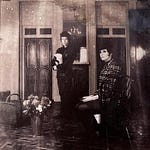
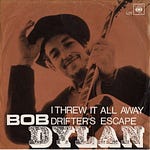
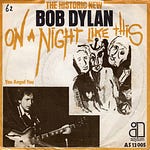

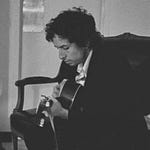

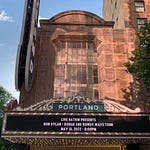
Share this post